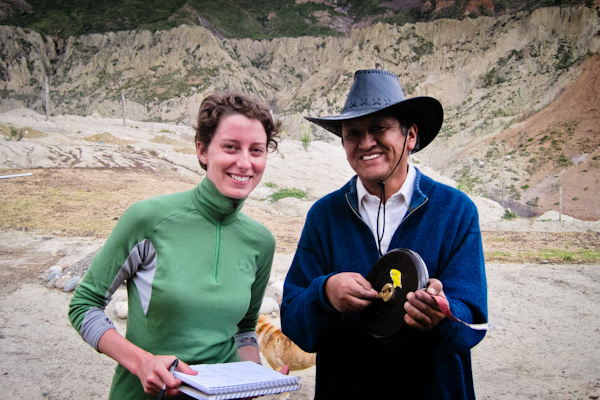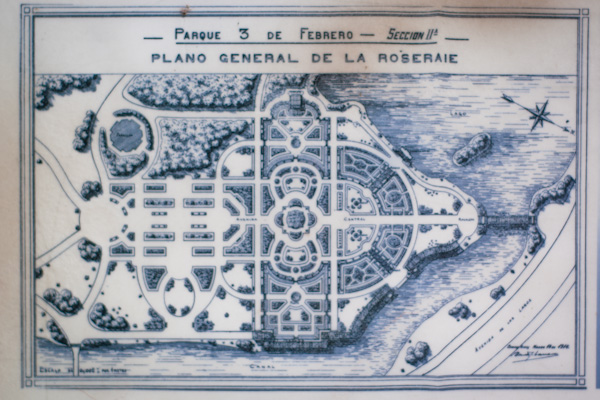
Though I left my job behind to travel the world for thirteen months, I did not abandon my career.
Intentional preparation allowed me to harness my professional skills, expand my experience and qualifications as a landscape architect, and add value to my travels. By laying groundwork before departure and remaining engaged on the road, I’ve connected with relevant projects and opportunities, and as a bonus, I’ve leveraged my skills to offset traveling expenses. While my story is connected to landscape architecture, the concepts apply to careers across the spectrum: nursing, construction, sales, finance, writing, painting, teaching…you name it!
As you plan your career break, consider these eight tips for making career-related connections on the road.
1. Research Other Travelers in Your Profession.
Since university, I’d kept a particular article from Landscape Architecture Magazine tucked away for future reference: a story of two senior level landscape architects who together left their jobs and signed up for two-year contracts with the Peace Corps, donating their skills and expertise to community development and conservations work in eastern Europe. I also valued stories of historical landscape architects whose international travels inspired and shaped their careers.
To Do: Google [Your Profession] and any combination of Travel + Blog + Story + Volunteer + International + Example + Case Study and see what comes up! Follow a blog, read a biography, soak up the inspiration and prepare to inspire.
2. Tap Colleagues and Associates for Resource and Inspiration.
Before departing, I spent time with a few trusted mentors and industry colleagues and asked this question: “While I’m traveling, what would you recommend that I look for and learn from with regard to landscape architecture?” Their answers inspired and shaped me, and helped me more clearly define the professional goals I hoped to achieve while traveling.
To Do: Think carefully through your existing professional network: even if they’re not travelers, are there free spirits who share your passions and professional interests? Schedule coffee dates and ask mentors what they recommend you look for and learn from with regard to your profession. Take notes!
3. Connect with Professional Associations.
Before departure, I’d served on the American Society of Landscape Architects’ Oregon Executive Committee and founded our state’s Emerging Professionals Committee. Curious about professional connections overseas, I contacted the International Federation of Landscape Architects and engaged in a helpful email conversation with the chair of the Young Professionals Advocate Task Force about networking opportunities and the potential for writing/sharing case studies with emerging professionals while on the road. I also received specific contact information for national chapter leaders in various countries around the world.
To Do: Send an email, introduce yourself, ask for contacts. Follow up with introduction emails to individuals along your route.

4. Look for Conferences and Events.
Before leaving, I took note of details for the International Federation of Landscape Architects’ World Conference; the date and location were a potential match for my itinerary! Once on the road, I learned that our visit to Lebanon coincided with the Beirut Design Festival, and I was able to take advantage of the opportunity to view proposals for future urban development projects projects slated for the city.
To Do: Check events calendars for associations and organizations and see if dates align with your travel times and itinerary.
5. Identify Relevant Contacts Within Travel Networks.
Before departing, my husband and I joined Servas, an international organization facilitating peace and hospitality through the cross-pollination of cultures and relationship. As we planned our trip and examined the Servas host directories, we looked for contacts that share interest and influence in our respective professions. For example, when we visited Salvador, Brazil, we connected with a community development worker and a young architect practicing in the city and teaching in the local university; they served as day hosts during our time in the city, and the rich learning experience added a layer of professional relevance to an otherwise touristy cruise-ship stop.
To Do: Research and join relevant travel networks such as Couchsurfing, Servas, Tripl, and begin compiling a list of hosts who share similar career interests and experience.
6. Keep in Touch with Your Alumni Association.
I remain in touch with my Alumni Association and with my department and past professors at the University of Oregon. I sent an update on my travels for our Architecture and Allied Arts Alumni Notes section and let them know about my travels. They in turn sent a request for an interview and published a feature piece on my experience bridging travel and professional practice. The article is a great tool for sharing my ongoing commitment to my profession with colleagues and industry contacts.
To Do: Contact your alma mater to see if they have an international alumni network. Make a note of your university’s contact information; send them an update once you’ve been on the road, supplying details of how your studies and professional practice tie into your overseas experience.

7. Look for Volunteer Opportunities That Match Your Skill Set.
Opportunities to put your skills to use on the road abound with organizations like Workaway.info and word-of-mouth referrals. I began researching in advance of leavening and made connections for projects where I could use my technical abilities to work in exchange for room and board in South America, Europe, and Africa. Such rich experiences: meeting new “clients,” and assisting in valuable ways while earning housing, meals, and work experience to add to my resume.
My one week room and board exchange for a residential/campground master plan in Bolivia and one month room and board exchange for a retreat center master plan in South Africa literally saved hundreds if not thousands of dollars in lodging, food, and transportation expenses and also provided invaluable experience to add to my professional portfolio (and the chance to spend time with truly wonderful hosts!).
To Do: Volunteer-trade exchanges aren’t limited to particular job types; brainstorm your skill set: technical trade, management, cleaning, writing, computer programming, cooking, providing child care, painting, gardening, driving, teaching, etc., etc. Ask contacts in your personal network if they’re aware of places or projects looking for volunteers. Browse sites like Workaway.info and others. Once you’ve found potential matches, commit to membership, submit your profile, and begin reaching out to potential partners. Treat potential connections as valuable professional opportunities, work hard, and confidently add the experiences to your resume.
8. Harness Social Media.
Since joining Twitter in 2008, I’ve followed local practitioners, companies, commentators, and international organizations related to landscape architecture. Thanks to such accounts as World Landscape Architecture webzine @wlandscapearch and @thisbigcity, the opportunity to read stories about Rio de Janeiro prior to arrival, for example, gave me an added level of understanding of their urban planning, waterfront redevelopment, and utility infrastructure projects in preparation for the Brazil World Cup and Olympics. Following @FutureCapeTown increased my excitement during lead time for the trip and gave me a helpful perspective on the city and its current position as World Design Capital for 2014 once I arrived to walk the streets in person.
To Do: Follow people and projects related to your profession, reach out to them for ideas and input when visiting their regions, and build connections within your industry.
If you find yourself preparing to take an extended break from employment and spend time overseas, I hope these ideas help you lay a solid foundation for making the most of your travels and gaining professional experience along the way.
With a bit of intentional planning and preparation, the decision to step away from your job and gain experience on the journey may turn out to be the greatest next step of your career!
Bethany Rydmark is a landscape architect by trade and a lover of the world by nature. After scheming and dreaming for eight years, planning and saving pennies, she and her husband Ted left their beloved home state of Oregon in 2012 to travel South America, the Mediterranean, the Middle East, Africa, Southeast Asia, and New Zealand. Her stories and photos are scattered around the web: www.twoOregonians.com and www.facebook.com/twoOregonians. Tweet her at @bethanyrydmark or @twoOregonians; she’d love to hear your stories.






